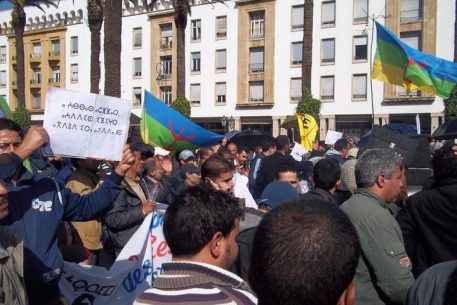Challenges and opportunities for local authorities in supporting Euro-Mediterranean cooperation
This report:
Corporate author(s): Commission for Citizenship, Governance, Institutional and External Affairs (European Committee of the Regions)
Personal author(s): Meknassi, Rim Filali (IEMed); Apprioual, Antoine IEMed) ; Maj, Agnieszka (CASE) ; Zubel, Karolina (CASE)
EXECUTIVE SUMMARY
This study explores the evolving role of Local and Regional Authorities (LRAs) in Euro-Mediterranean cooperation, highlighting their growing contribution to regional development, integration, and resilience. Drawing on extensive case studies, survey data, and field insights, the report examines both the achievements and persistent obstacles faced by LRAs in addressing transnational challenges such as climate change, youth unemployment, migration, and digital transformation, notably through territorial cooperation and dialogue.
Key findings
• LRAs are increasingly acting as engines of innovation, delivering place-based solutions through projects in sustainable energy, urban food systems, the circular economy, and cultural diplomacy. Their proximity to citizens and operational flexibility make them uniquely equipped to address complex regional priorities with practical, locally adapted responses.
• Despite their contributions, LRAs remain underutilised and underfunded. Access to EU funding is hampered by administrative complexity, co-financing requirements, and a lack of technical capacity, especially for smaller municipalities and those in Southern Mediterranean countries. Many operate within centralised systems that limit their legal and institutional capacities.
• Emerging trends point to opportunities for scaling LRA impact through decentralised cooperation, municipal diplomacy, peer learning, and multi-level governance. These approaches demonstrate that LRAs can lead, not just support, Euro-Mediterranean cooperation when given the tools and space to act.
• The EU remains the primary enabler of cross-border cooperation for LRAs. However, reform is needed to simplify procedures, adapt programmes to local realities, and establish technical support structures that empower under-resourced municipalities to engage effectively.
Recommendations
• For LRAs: Strengthen internal governance, build international cooperation units, institutionalise participatory models, and proactively lead decentralised partnerships.
• For national governments: Reform decentralisation frameworks, create legal and fiscal space for LRAs to lead, and integrate them into national cooperation strategies.
Read the full study on the Publications Office of the EU.








